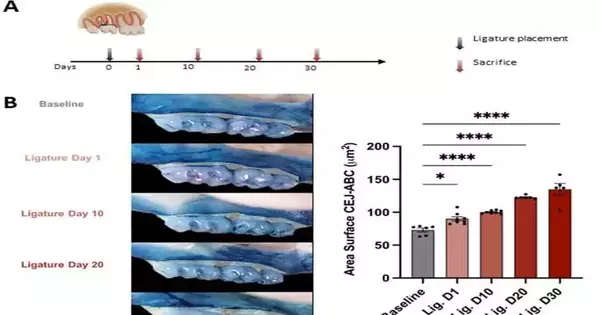There is growing evidence that oral bacteria play a significant role in systemic diseases like heart disease and colon cancer, despite the fact that the majority of people do not associate oral disease with serious health issues. Amyloid plaque, a hallmark of Alzheimer’s disease, is now linked to periodontal (gum) disease, according to new Forsyth Institute research.
Forsyth researchers and their Boston University colleagues demonstrate in their paper “Microglial cell response to experimental periodontal disease,” which was published in the Journal of Neuroinflammation, that gum disease can alter microglial cells, which protect the brain from amyloid plaque. Alzheimer’s patients are more likely to experience cognitive decline and cell death when they have plaque, a type of protein. The study sheds light on how oral bacteria get to the brain and how neuroinflammation plays a role in Alzheimer’s disease.
Dr. Alpdogan Kantarci, a senior staff member at Forsyth and a senior author of the study, stated, “We knew from one of our previous studies that inflammation associated with gum disease activates an inflammatory response in the brain.” In this study, we sought to determine whether oral bacteria can alter brain cells.
“We knew from one of our earlier studies that inflammation related to gum disease activates an inflammatory response in the brain,”
Dr. Alpdogan Kantarci, senior member of staff at Forsyth
The researchers looked at a type of white blood cell called microglial cells, which digest amyloid plaque. Microglial cells became overstimulated and overate when exposed to oral bacteria, according to Forsyth researchers. “In essence, they became obese,” Dr. Kantarci stated. They were no longer able to break down plaque.
The result is significant because it demonstrates how gum disease affects overall health. Lesions between the teeth and the gums are the result of gum disease. This lesion covers an area the size of your palm. “It’s an open wound that lets the bacteria in your mouth enter your bloodstream and circulate to other parts of your body,” Dr. Kantarci explained. These bacteria can stimulate your brain’s microglial cells by breaking through the blood-brain barrier.
The researchers were able to track the progression of periodontal disease in mice and confirm that the bacteria had reached the brain by using mouse oral bacteria to cause gum disease in lab mice.
The brain microglial cells were then isolated and exposed to oral bacteria. The microglial cells were stimulated, neuroinflammation was triggered, and their approach to amyloid plaques was altered by this exposure.
According to Dr. Kantarci, “recognizing how oral bacteria cause neuroinflammation will help us develop much more targeted strategies.” According to the findings of this study, controlling the oral inflammation that is brought on by periodontal disease will be of the utmost importance in the fight against both neuroinflammation and neurodegeneration. Because the mouth is a part of the body, you won’t be able to reliably prevent systemic diseases like Alzheimer’s if you don’t treat oral inflammation and infection.
For the first time, researchers were able to study the effects of the same species’ oral microbiome on the brain by inducing periodontal disease in mice. The test gets closer to replicating the human process by using cells and bacteria of the same species.
Forsyth’s Rawan Almarhoumi, Carla Alvarez, Theodore Harris, Bruce J. Paster, and Alpdogan Kantarci, as well as Boston University’s Christina M. Tognoni, Isabel Carreras, and Alpaslan Dedeoglu, were all members of the study’s team.
More information: Rawan Almarhoumi et al, Microglial cell response to experimental periodontal disease, Journal of Neuroinflammation (2023). DOI: 10.1186/s12974-023-02821-x





